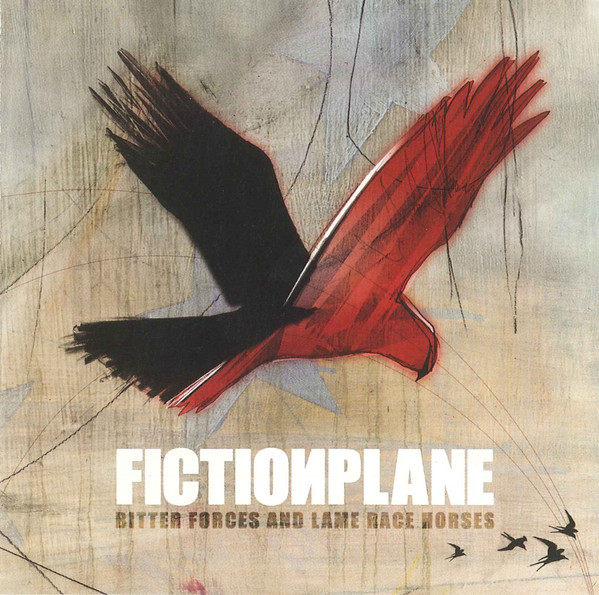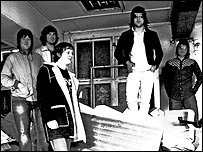
Fiction Plane
Bitter Forces and Lame Horses EP
It’s 1991, Nirvana release ‘Nevermind’, and approximately fifty billion kids buy a guitar and grow their hair long. There’s no escaping it! While they are justifiably cited as one of the most influential bands of all time, Nirvana also have to own up to the fact that they caused immense suffering. For example, I had to endure two years of non-stop dodgy acoustic versions of ‘Polly’, ‘Smells Like Teen Spirit’, and ‘Come as You Are’ – all played by spotty college mates with the emotional age of the front-cover baby and considerably less talent.
However, I now officially forgive Kurt, Krist, and Dave because, despite those years of torture, if it wasn’t for them we wouldn’t have bands like Fiction Plane. Inspired by the Seattle grungers, Joe Sumner decided to start writing songs and eventually formed a band that doesn’t actually sound at all like the presidents of grunge.
With warm ambient tones and waves of piano building alongside some distant cello, it’s hard to imagine what’s about to happen. In fact, ‘American Standard’ does a good job of maintaining its enigma-status throughout as the guitars and piano swap over leading the track, with the mix of sparkly and melancholic tugging at opposing edges of the music. The vocal, and indeed the lead guitar in the chorus, pays tribute to Bono and Edge respectively, but the almost-defeatist lyrics are more cutting than any U2 track.
‘Patience’ thuds to life, adding touches of Something Corporate and flourishes of American rock to the aforementioned Dublin boys sound, with the guitars getting gutsier as the song progresses towards an excellent break. I liked this song as soon as the verse kicked in with weaving piano and emotional vocal, which turns into a self-persuading cry of ‘hold on’ for the sun-through-cloud chorus and inspirational bridge.
With a chilled guitar intro, ‘Author Lies’ sounds almost apologetic at the start, like Oliver Twist hesitantly asking what the chances are of seconds. However, put this into context with some intellectual lyrics, a chorus Robert Smith would have been proud of and a fantastic flourish at the end of the song and you’ll soon discover that this track finds stature enough to compete with the more immediate tunes on the EP that borrows its title from these words.
There are more references to The Cure in ‘Tolerate’, which has a drum beat reminiscent of some of the percussion on their ‘Wild Mood Swings Album’. The song sounds deep throughout, musically doing justice to the words with blissful transitions from dark to light, like a corridor in a really old house, with misty light seeping through heavy nets to break up an otherwise haunting passageway.
This record contains nothing but incredibly accomplished music woven into totally appealing pop-rock songs with surprisingly astute lyricism. The more I hear it, the more I’m convinced that there is something really special about it.
Written by Fenton on





